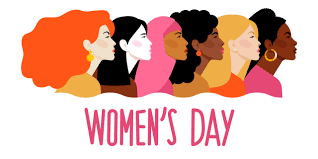|
Getting your Trinity Audio player ready...
|
Championing Change: Inspiring Inclusion and Celebrating Working Mothers on International Women’s Day
As the world celebrates International Women’s Day on March 8 to honour the socio-economic, cultural, and political achievements of women worldwide, there is the need to call for gender equality and the advancement of women’s rights.
The day serves as a global platform to raise awareness about gender inequality and to advocate positive change.
It is celebrated on the theme: “Inspiring Inclusion,” which emphasizes the importance of diversity and empowerment in all aspects of society and the need to acknowledge the remarkable strides made in advancing gender equality.
Challenges Faced by Women, Particularly Mothers, in the Workforce
While Ghana has made significant progress in promoting gender equality, there remains a pressing need for targeted support for mothers returning to work after maternity leave.
According to a 2020 report by the Ghana Statistical Service (GSS), approximately 42 per cent of women are formally employed as part of the labour force in Ghana.
This represents a significant increase from previous years and highlights the growing participation of women in the formal workforce in diverse sectors such as finance, education, healthcare, and manufacturing.
Also, recent data from Statista 2023, says an estimated 6.8 million female population are employed in Ghana.
This trend reflects evolving societal attitudes, supportive policies, and concerted efforts by stakeholders to promote gender parity in the workforce.
Women now occupy prominent roles as entrepreneurs, professionals, executives, and civil servants, contributing significantly to Ghana’s economic growth and development.
However, despite these strides, women continue to encounter multifaceted challenges in formal workspaces, especially after maternity leave.
Balancing the demands of work and family responsibilities while adjusting to the changes brought about by motherhood poses unique challenges for women, compounded by deeply entrenched gender stereotypes and limited access to supportive policies and resources.
Mothers returning to work after maternity leave face critical challenges. A report by UNICEF Ghana in 2020, noted that only six per cent of children under the age three have access to formal childcare services, leaving many parents, particularly women, struggling to balance work and childcare responsibilities.
Ghana’s labour laws mandate a minimum of 12 weeks of maternity leave, beyond these three months mothers are on their own, meanwhile the Ghana Health Service, World Health Organisation and UNICEF advocate six months exclusive breastfeeding, thus mothers are expected to return to work with limited access to affordable childcare.
Again, many workplaces in Ghana have rigid policies that do not accommodate the needs of working mothers. A study conducted by the International Labour Organisation (ILO) 2019, found that women in Ghana often faced inflexible work hours and limited maternity leave benefits, making it difficult for them to balance work and family responsibilities.
Additionally, stigmatisation and discrimination against working mothers are well-documented issues in Ghana. Research by the Ghana Employers Association (GEA) in 2018, highlights the prevalence of negative stereotypes and biases against women who take maternity leave, leading to reduced career advancement opportunities and unequal treatment in the workplace.
Furthermore, breastfeeding support in the workplace is often lacking in Ghana. According to a study published in the Ghana Medical Journal in 2014, many working mothers face challenges in maintaining breastfeeding practices after returning to work due to the absence of supportive policies, including designated lactation breaks and facilities.
Moreso, transportation infrastructure deficiencies in Ghana contribute to the challenges faced by women returning to work after maternity leave.
A World Bank report in 2018 highlights the inadequate public transportation system in Ghana, particularly in rural areas, which can impact women’s ability to commute to work effectively.
Financial pressures often drive women to return to work earlier than they would prefer after maternity leave. The Ghana Living Standards Survey conducted by the Ghana Statistical Service in 2017 revealed that many households rely on women’s income for financial stability, making it necessary for them to return to work sooner, even if they are not fully prepared.
Achieving work-life balance is a significant challenge for women returning to the workforce in Ghana. The Journal of African Studies and Development in 2016 highlights the strain on women’s mental health and well-being due to the lack of support systems and resources to help them manage their work and family responsibilities.
Finding Solutions to the Challenges
Addressing these challenges requires a multi-faceted approach involving government intervention, employer initiatives, and community support to implement supportive policies and programmes that promote gender equality and work-life balance for women returning to work after maternity leave in Ghana
While some advocate extended maternity leave to six months or more, this, though well-intentioned, can inadvertently hinder women’s career progression.
Extended absences from the workforce may result in a gap in skill development, limiting opportunities for professional growth and advancement.
Moreover, prolonged maternity leave can disrupt networking opportunities, exacerbate financial strain, and create challenges when reintegrating into the work environment. These factors contribute to gender disparities in the workplace.
While supporting working mothers is essential, it is crucial to explore alternative solutions that balance the needs of both mothers and employers.
Ultimately, the goal should be to create a work environment that fosters gender equality and supports the diverse needs of all employees, including working mothers.
It requires making conscious decisions to support women and necessitates an ongoing commitment and action beyond symbolic gestures like celebrating International Women’s Day (IWD).
Undoubtedly the IWD has a great significance for steps towards acknowledging and celebrating women’s contribution to societal growth in general, but we must make conscious decisions to support them, which requires ongoing commitments and actions beyond this day.
As the world reflects on the theme: “Inspiring Inclusion” for the 2024 celebration, it is imperative for governments, private institutions, and international bodies to come together in support of working mothers.
While progress has been made in advancing gender equality, there is still much work to be done to ensure that working mothers had the support they need to thrive in the workforce.
They can communicate their needs to employers for flexible work arrangements and prioritise self-care to maintain well-being.
Leveraging support networks and advocating supportive workplace policies are crucial for navigating challenges and promoting gender equality.
Continuous learning and skill development enhance competitiveness in the workforce and advance career prospects.
Governments play crucial roles in shaping policies that promote the well-being of working mothers. It is, therefore, essential for governments to enact and enforce laws that guarantee maternity leave, flexible work arrangements, and access to affordable childcare.
Additionally, governments should invest in programmes that provide financial assistance to working mothers, such as subsidised childcare and parental leave benefits.
Private institutions also have a responsibility to support working mothers within their organisations to ensure their progress and wellbeing.
Employers should implement policies that accommodate the needs of working mothers, including flexible work hours, telecommuting options, and on-site childcare facilities.
Furthermore, private institutions should strive to create a supportive work culture that values work-life balance and diversity.
International bodies have vital roles to play in advocating the rights of working mothers on a global scale. These organisations can provide guidance and resources to governments and private institutions to help them develop and implement supportive policies and practices.
International bodies should also work to raise awareness on the challenges faced by working mothers and advocate gender equality at the workplace.
The United Nations and other international bodies can monitor governments’ progress in implementing policies to enhance gender equality in the workforce and support working mothers.
They can conduct regular evaluations to assess the impact of these policies and identify areas for improvement, providing recommendations for further action.
Ghana can draw inspiration from other countries around the world that have implemented supportive policies for mothers returning to work after maternity leave.
Sweden, Norway, Denmark, Canada, and Finland have taken significant initiatives to support working mothers, including extended maternity leave, subsidised childcare, and flexible work arrangements.
By learning from the success stories of these countries, Ghana can strengthen its efforts to support mothers in the workforce and promote gender equality.
It is encouraging to see organisations like the Regional Advisory Information and Network Systems (RAINS), a local Non-Governmental Organisation in Tamale, demonstrating support for mothers returning to work after delivery.
RAINS has set up a daycare facility for its staff, where working mothers who resumed after the 12-week maternity leave are provided a safe and secure environment where their babies can be catered for.
This initiative provides a conducive environment for childcare and an opportunity for mothers to exclusively breastfeed their babies.
The psychological relief and reduced anxiety resulting from this support will not only improve productivity but also build the confidence of women, ensuring they feel valued and heard in the workplace.
Together, the world can make a significant impact in supporting working mothers and promoting gender equality in all areas of work.
By collaborating and taking concrete actions, the world can create a safe environment where all mothers can pursue their careers and fulfill their potential.
Let the public seize this opportunity on International Women’s Day to reaffirm the commitment to supporting working mothers and building a more inclusive and equitable society for all.
(The writer, Fauzia Aliu, is the Acting Policy and Campaigns Manager, WaterAid Ghana).
Source: GNA





